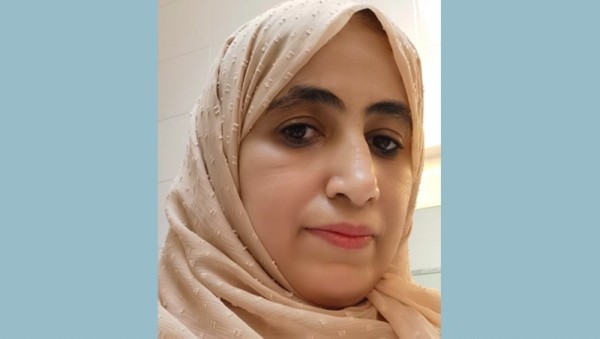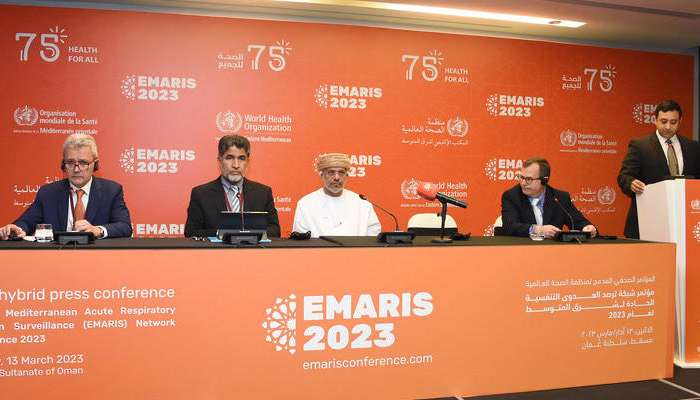

Muscat: Dr. Ahmed bin Salem Al-Mandhari, Director of the World Health Organization for the Eastern Mediterranean Region, (WHOEMR), praised the efforts of the Sultanate of Oman in the surveillance of respiratory infections. He noted that the Sultanate has established an accurate epidemiological surveillance system based on basic pillars of the World Health Organization (WHO) and other relevant authorities.
This came during a press conference held today in conjunction with the Sultanate of Oman, represented by the Ministry of Health, the sixth meeting of the Acute Respiratory Infection Surveillance Network for the Eastern Mediterranean and the Third Scientific Conference on Acute Respiratory Infection.
The Director of the WHOEMR indicated that in the past years, the health system in the Sultanate of Oman and those in charge of it had accumulated a lot of experience through the spread of outbreaks, epidemics or pandemics, whether in the Sultanate of Oman or the world.
He stated that the Sultanate of Oman adopted the approach recommended by WHO during the Corona pandemic, which is the approach of one government and society as a whole, and the integration between them through many measures.
Dr. Al-Mandhari stated that the discussions and deliberations in the conferences conducted by the Sultanate of Oman will enhance the capabilities of workers in the health sector and those in charge of it, as it reflects the confidence of the World Health Organization in the health system in the Sultanate and the close cooperation between both sides.
He added that the collaborative efforts of the World Health Organization, member states and other partners are helping in making great progress in developing health systems to prevent, prepare for, detect and control emerging respiratory diseases in the Region, based on the lessons learned from the Covid-19 pandemic.
He also mentioned that the World Health Organization last year prepared a regional framework and implementation plan for integrating surveillance systems for influenza, SARS-COR 2, and other respiratory viruses that may cause epidemics and pandemics, and many countries in the region are currently working on implementing integrated surveillance for influenza and other respiratory diseases.
Dr. Al-Mandhari stressed that the World Health Organization has made strengthening the capacities of countries to respond to disease outbreaks and other health emergencies a top regional priority in the humanitarian situation for the current year.
He also stated that the commitment to pandemic preparedness, investing in it, and applying the lessons learned from Covid-19 is a moral and professional duty, and that we must all work together to promote the One Health approach.
For his part, His Excellency Dr. Saeed bin Harib Al Lamki, Undersecretary of the Ministry of Health for Health Affairs, affirmed that the Sultanate of Oman is working side by side with WHO in monitoring acute respiratory diseases. He added that the Sultanate is one of the first countries in this aspect.
He added that the World Health Organization praised the epidemiological investigation system in the Sultanate of Oman in its accuracy, and its sending and sharing of reports with the organization.
His Excellency indicated that the presence of seasonal influenza in the Sultanate of Oman is possible and is expected to occur annually in all countries of the world, stressing that there is nothing to worry about in this aspect and the epidemiological investigation teams in the Ministry are playing their role in this regard, and care institutions monitor changes in any epidemiological pattern.
Dr. Richard Brennan, Director of the WHO Regional Emergencies Program for the Eastern Mediterranean, and Dr. David Wentroth, Director of the WHO Collaborating Center for Influenza Surveillance and Epidemiological Characteristics and Head of Virus Surveillance, Diagnosis and Influenza, Center for Disease Control and Prevention, USA, also participated in the press conference.